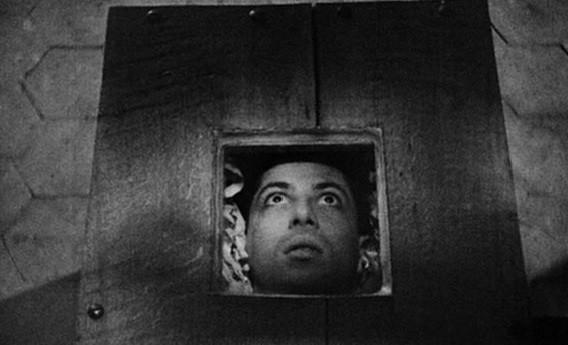Red Lights is all about fakery and misdirection. Like the
best magician, it draws your attention elsewhere while it works its ‘magic.’ In
the best cases, this is enjoyable. David Copperfield makes a babe in a bikini
appear out of thin air. Where’d she come from? Excellent! In the worse cases,
however, you find yourself fleeced by a swift conman. Red Lights both
entertains and fleeces.
The first half of the film focuses on the relationship
between a professional debunker (Sigourney Weaver) and her assistant (Cilian
Murphy). Episodically, they do their job, exchange philosophical discussions,
and provide character background. The second half introduces a world-renowned
psychic (Robert DeNiro) that no-one has ever been able to debunk. Weaver and
Murphy are drawn into the surprisingly dangerous world of trying to debunk to
undebunkable DeNiro.
The debunking and philosophical discussions were earnest and
intriguing. I was particularly delighted with Weaver’s performance as a
debunker so assured of her time-honed principles and techniques that she’s
become an atheist guru. One never senses from her a lack of spirituality or
depth, an emptiness or apologetic undertone so often accompanying atheist
characters in popular media. Murphy’s wide-eyed discipleship is charming if a
little confusing. But that’s all part of the ‘magic.’
The fleecing, here, is knowing that almost all of the
debunking scenarios, principles, and even some of the philosophical discussions
are taken wholesale from the life and opinions of James Randi. The faith healer
with the radio transmitter is, in parts, taken word-for-word from Randi’s
debunking of Peter Popoff. That’s just one instance; there are more. I know,
because I spent my undergrad as a wide-eyed Randi disciple.
Even DeNiro’s character is an embellishment of Randi’s
long-time nemesis, Uri Gellar, the infamous spoon-bender. He excited minds in
the ‘70s with his one-trick charlatanry that bamboozled genuine scientists,
faded from view, tried to make a return on Israeli TV, and ultimately confessed
to being a mere magician. The conflict between Randi and Gellar is exaggerated
in Red Lights, but obviously the source.
I have a problem with this liberal theft from Randi’s career
because, first of all, I think Randi’s life is interesting enough to be
dramatized on its own and not cannibalized by fiction. Secondly, I’m furious
with the lack of imagination shown by a writer (director Rodrigo Cortes) who
really should have been able to invent, rather than steal, the material for his
screenplay. This may not literally be plagiarism, but it’s not acceptable from
a creative mind.
The conflicts between Weaver and DeNiro, Murphy and DeNiro,
and even between Weaver and Murphy over DeNiro, I found mostly plausible and
engrossing. DeNiro’s character is a slippery manipulator whose main mode of
communication is chewing the scenery—making DeNiro’s task a cakewalk. Often his
bombastic speeches are exaggerated to a laughable extent. But the film’s best
moment is his philosophical monologue to Murphy. Like any viewer would, I wondered
whether DeNiro’s character was genuine or not. I was invested in the conflicts
between these characters and interested in how they would be played out.
Cortes’s whole methodology, however, is to fleece the viewer
with a sucker-punch conclusion that really deflates a lot of the dramatic power
earned up to that point. This is the kind of conclusion that requires a
flashback to all the key ‘hints’ throughout the film. The kind of conclusion
that the viewer doesn’t think of, not because it’s hard to figure out, but
because it’s too tiresome and stupid.


2 comments:
I thought this film fell completely apart once Weaver's show was done. It didn't take long for me to understand all of the chaos and what was causing it, but by the time of the conclusion, I had felt the previous 40 minutes of the film were little more than a waste. I agree with you about the real-life counterparts, aside from the fact that Randi is a stage magician and not an actual scientist (my biggest criticism of him as a person.) I also agree that there is plenty of fiction to write here, or even plenty of real life characters to mesh together, as opposed to blatantly ripping off the lives of Randi and Geller, but perhaps the greatest fiction was portraying Gellar as if he wasn't a buffoon.
Yeah, Weaver was definitely the best part of the movie. And I agree on Geller. DeNiro's character is a master manipulator, not the bumbling, litigious twirp we know ol' Uri to be.
Post a Comment